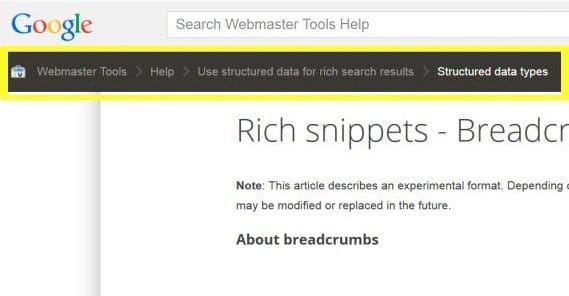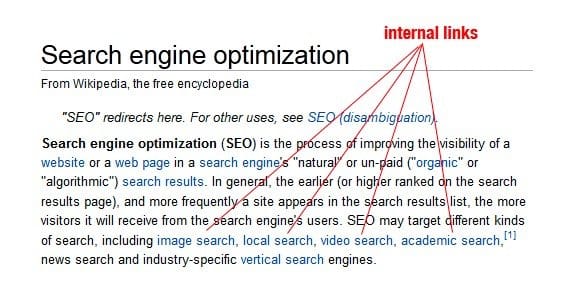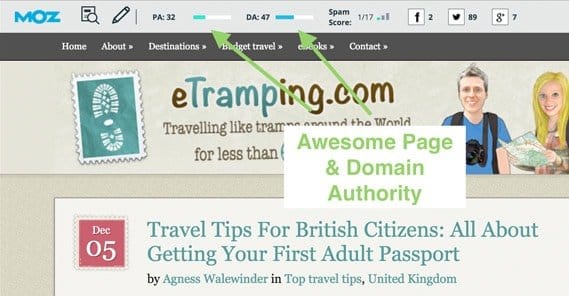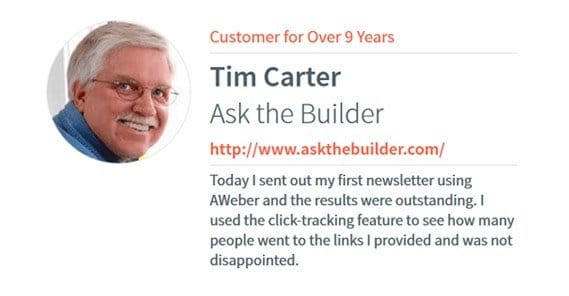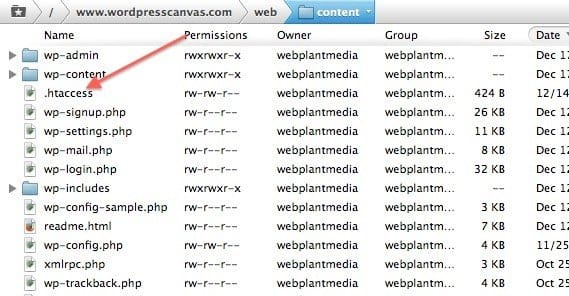25+ Ways to Increase the PageRank of a Website

Google’s PageRank was, for a long time, one of the key metrics that webmasters used to gauge the success of their sites. It was one of the foundational aspects of the entire Google algorithm, so it seemed like a good numeric number to use to indicate how well a site was doing.
All that changed when Google stopped paying attention. Well, okay, that’s a little unfair of them. Google isn’t a huge fan of webmasters paying attention to one aspect out of hundreds. It just so happened that too many people started ignoring more important metrics in favor of PR. They slowly stopped updating the public measurement of PageRank itself, which was provided through the Google toolbar.
Many today are declaring PageRank to be dead, though that’s not strictly true either. PageRank still exists and it’s still a factor used in Google’s algorithm, it’s just not publicly shown to webmasters any more. The small value it gave to people using the toolbar has been outweighed by the bad habits developed by people who cared about it over what Google considers more important, like providing value to users.
That said, PageRank is still a good concept to understand. People still search for ways to boost it, and those methods will certainly help your site even today. Plus, most of these methods will help you increase other metrics of influence, like the often-updated MozRank, as well as your organic search traffic. Plus, of course, if Google ever does update their PageRank displays again, you’ll be primed and ready for a boost.
PageRank itself is almost purely a link-based algorithm. However, many other metrics go into search engine success, and with the actual PageRank number not being shown, I’ve included tips that will help you in other ways and with other, similar metrics.
1. Create a Strong Foundational URL Structure
One of the key factors in search is the ability for users to find what they’re looking for. One of the easiest ways to accomplish this is to have a URL structure that makes sense. Different people like different information in their URLs, but it’s hard to go wrong with a date and a truncated version of the post title. You should also have sane breadcrumbs to optimize the structure of your site, through categories rather than overlapping tags.
2. Write Better Meta Content
Your meta title and description are what show up in search, but they’re important for more than just that. The keywords you use in your meta data have a stronger influence over the way your content ranks than you might realize. Always make sure the keywords and content in your meta data match the actual content you produce. You won’t be able to get away with the disconnect; Google will likely demote your site because of it.
3. Use Image Alt Tags
Image alt tags are both a usability factor and another piece of meta data you can use to include keywords, so make sure you’re using them. It’s always a good idea to pick a highly relevant image so that you can have a more relevant and keyword-laced alt description for it. Remember; an alt tag is different from a caption. Alt tags appear when a user hovers, or when the image doesn’t load at all. They are also read by content readers that assist the blind.
4. Create More Content
This is where the numbers game comes in. A higher PageRank comes from having more high quality incoming links. It’s easier to have more links when you have more content to link to. Publish more content, earn more links to that content, have a higher PageRank. As long as the content is high quality, it should have no trouble earning links. Avoid duplicating topics you’ve already covered, avoid rehashing information everyone knows, and strive to write the best content you can covering the subject.
5. Create Content Regularly
A regular content production schedule is crucial for maintaining the high level of quality you need for your site. It keeps you in practice, it keeps you producing, and it keeps you on top of current events, because you need to pay attention to the latest data to come up with relevant topics. All of this helps you earn links, which in turn boosts your PageRank. I highly recommend using an editorial calendar and trying to schedule posts several weeks or months in advance, to give you leisure to write what inspires you instead of churning out content you don’t care about.
6. Continually Link Internally
Internal links are just as important as incoming backlinks. They help keep people around, because they “wikiwalk” from one page to another within your directories of content. They help Google keep a firm grasp of your site structure and index all of your content. They even have a very minor effect as a link to your site, though they don’t really pass PageRank value or count as strong backlinks. As long as you aren’t abusing them, linking to a couple other posts within each post you make is always a good idea.
7. Audit and Remove Bad Backlinks
Just as you want good incoming links to boost your PageRank, you want to eliminate bad incoming links to avoid having it decreased. This means on a monthly basis, you should be checking your backlink profile with several tools. I recommend Google Analytics and Ahrefs, though you can use any tools you find effective. Identify new links, check to see if they’re good or not, and disavow the spammy links to keep them from drawing your site down into a pit of spam.
8. Identify the Top 100 and Earn Links
Neil Patel identifies the top 100 as the 100 domains that show up at the top of search for a given keyword. He recommends that you compile a list of each of them and hunt down contact information to reach out. Message them and pitch your site, asking for a link. He has a template message on the post I just linked, though I personally think it’s a little overdone. In any case, reach out to as many of the top sites as you can and ask for links; the more that respond, the better off you are and the easier it will be to rank.
9. Guest Post for Links – Even NoFollow
NoFollow links used to be the bane of the marketer’s life. You work hard in a deal to get a link, usually with a high quality guest post, and they link to you with that pesky little tag. Just like that, any value you might have had disappears.
Fortunately, this isn’t really true. NoFollow links are still good links. They build brand awareness and they funnel traffic to your site. The only thing they don’t do is pass PageRank link juice, but that’s fine; one good link leads to another, and making site owners aware of your site does wonders.
10. Speed Up Your Site
Site speed is an important search ranking factor, and it’s important for keeping users on your site. By speeding up your site, you’re pushing yourself that much higher in the search rankings. Any step you take to improve your search ranking can have a cascading effect on your PageRank. I recommend auditing plugins, streamlining code, smushing images and using a content delivery network for the heavy lifting if necessary.
11. Build up Social Media
Using social media is a great way to earn links, though links directly from social media sites don’t do a lot for your PageRank. They build a lot of awareness, though, and reposts from influencers can lead to a lot more traffic and links. It’s always a good idea to run at least one or two social media accounts, typically Facebook and Twitter unless your site has a peculiar audience. You should also consider some social bookmarking like Reddit, if you can swing it.
12. Hire a PR Agency
No, I don’t mean a PageRank agency; I mean a public relations agency. These are the people who can get you mentioned in the press, and you know what’s really, really good for PageRank? A high quality link coming in from an authority news site like TechCrunch, the BBC’s website, or another highly selective news site. PR representatives have connections and can get you mentioned or even interviewed.
13. Help a Reporter
Speaking of interviews, another source you can use is HARO, the Help A Reporter Out system. There are always interviewers looking for people who are authorities in certain topics to ask for their expertise. You can be that expert, and in exchange, get a mention and a link in a news site. It often doesn’t take much time or effort to do these interviews, and they can have a lot of influence.
14. Interview Influencers
You can also play the role of interviewer. I always like the idea of doing this, because both you and the interviewee gain reputation and benefits from it. Obviously, they must be an authority, because you’re choosing to interview them. And obviously, you’re in a good position because you’re interviewing people, and only people who have some clout with an audience do that sort of thing. Even if neither side is particularly true, through force of persistence you can make it true.
15. Make WWW and HTTP URLs Match
This is a simple bit of URL structure you should keep in mind. When you have a domain name, you typically have both http://example.com and www.example.com. The thing is, according to Google, those are both unique URLs and thus lead to different sites. You might have a little bit of link juice for each URL, but combining them would give you a much higher ranked site. Pick one structure to focus on and redirect the other to the primary.
16. Solicit Good Testimonials
A good testimonial can go a long way towards a lot of different types of benefits. They make users trust you more. They can come along with a recommendation from an influencer. They can involve high quality links one way or the other. They can even help sell your site or your products, as social proof and as an implicit review.
17. Donate to Charities
Why is this here? No, I’m not just trying to make the world a better place by encouraging businesses to donate to charities. This is a selfish goal, believe it or not. When you donate a sizable amount to a charity, you very frequently will find a link to your brand on their site. These sites tend to be high PageRank sites and thus will pass a lot of link value on to you. Even if they’re not particularly relevant, they’re still valuable links you can earn.
18. Do Some Broken Link Building
Broken link building is a way of cannibalizing value from sites that maybe don’t check their links all that often. It works like this. First, you run searches looking for old content that used to exist but now no longer resides at the URL it was initially hosted on. Once you find this content, you need to find sites that linked to it. Identify links that still exist on sites that are still kept up to date, and reach out to the site owner. Let them know that the link to that content is broken and that you think your link is a suitable replacement. Chances are they’ll fix the link and give you credit. At the very least, you’ve made them aware of your site, so they might organically link to it later.
19. Comment on Relevant Blog Posts
Blog comments are very often over-used as a spam technique, so you’re going to have to be very careful in the way you do this. I recommend not including your link at all in comments, at least not until you’ve commented enough on a particular site that the owners recognize you as someone who has knowledge and the perspective necessary to provide valuable content. Get the reputation first, then the links.
20. Find Implicit Mentions and Make Them Explicit
Brand mentions or “implied links” are times when someone mentions a piece of your content, or even just your brand as a whole, but doesn’t explicitly link to you. Sometimes, you will be able to reach out to these people and ask for them to add a link to that mention. Don’t do this more than once for a domain, though; it’s generally a good idea to have some brand mentions out there, not just links. Also, don’t automate this; you’ll end up sending these requests to negative mentions, and probably will end up mocked for it.
21. Hide Unnecessary Pages from Google
You don’t need your between-content category pages, tag indexes, or other system pages indexed, they just get in the way of more important content. You can compile the links to these pages and add them to your robots.txt file as disallowed, noindexed content. Just make sure you’re being very careful with your robots.txt file. It’s all too easy to accidentally disallow something important.
22. Submit to High Quality Industry Directories
Directory submission is another one of those old techniques that has been abused around the block, but can still be valuable if you do it properly. For one thing, avoid any software automation for submission, and avoid anyone who wants to submit to “hundreds of directories” for a fee. This will end up with your site featured on dozens of spam blogs, much to your dismay. Instead, identify high quality industry directories and submit your content to them alone.
23. Strive for Link Diversity over Quantity
This is less actionable and more general, as are the remaining two after it. Link diversity is very important to PageRank. 1,000 incoming links, all from the same site, are not very valuable. They might be as valuable, comparatively, as 50 links from different domains. I’m just throwing numbers on the table here; I haven’t done studies. The point is, you want links from as many high quality, relevant root domains as possible. You don’t want to put all your eggs in one basket, so to speak.
24. Strive for Link Quality over Quantity
This is similar to the previous point; one good link from Moz is worth 1,000 spammy links from SEO-focused PBNs that have been flagged and demoted already. Quality and relevance are both very important for links, and the more influential the site is in your industry, the better the link will be.
25. Strive to Link to Evergreen Content
Evergreen content is content that lives on year after year, and it’s always better to get links to this sort of content than to other types of content. Evergreen content comes back time and again, so the links to that content will always be helping it out. By contrast, links to content that fades over time, will themselves fade in value over time.

 ContentPowered.com
ContentPowered.com
